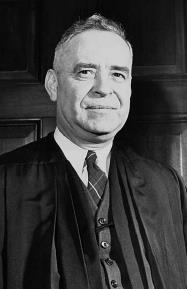The Stone Court (1941–46)First Amendment |
How did the Stone Court deal with licensing laws that imposed fees on those who distributed religious materials? |
The Stone Court examined several cases that dealt with city licensing laws that were challenged by Jehovah’s Witnesses. In three consolidated cases from Alabama, Arkansas, and Arizona, the U.S. Supreme Court ruled 5–4 in Jones v. City of Opelika (1942) that cities could impose licensing fees on religious groups that sold materials for money on public streets. “When proponents of religious or social theories use the ordinary commercial methods of sales of articles to raise propaganda funds, it is a natural and proper exercise of the power of the state to charge reasonable fees for the privilege of canvassing,” Justice Stanley Reed wrote for the majority.
The Stone Court changed course in a series of seven consolidated cases in Murdock v. Pennsylvania (1943). The lead case involved a Jeannette, Pennsylvania, ordinance that imposed a $7-a-week licensing fee for solicitors. A group of Jehovah’s Witnesses who went door-to-door distributing religious books (for which they requested donations) challenged the law on First Amendment grounds. The U.S. Supreme Court ruled 5–4 that the law violated the free-exercise-of-religion rights of the Jehovah’s Witnesses. “The constitutional rights of those spreading their religious beliefs through the spoken and printed word are not to be gauged by standards governing retailers or wholesalers of books,” Justice William O. Douglas wrote for the majority. “The right to use the press for expressing one’s views is not to be measured by the protection afforded commercial handbills.”

